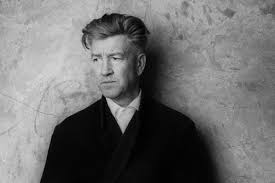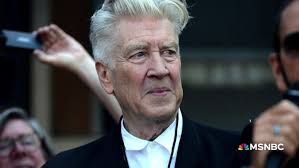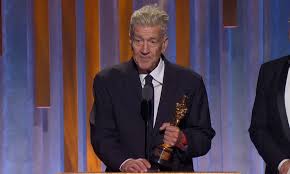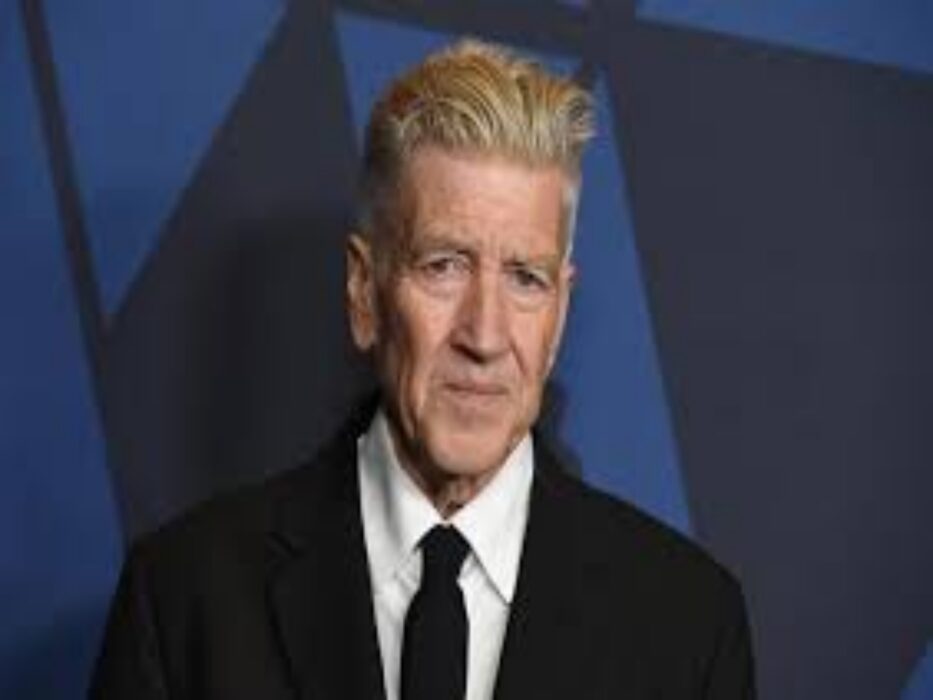Director and writer David Lynch, renowned for transforming American cinema with his dark and surreal artistic vision in works such as “Blue Velvet” and “Mulholland Drive,” as well as revolutionizing network television with “Twin Peaks,” has passed away at the age of 78.
In 2024, Lynch disclosed that he had been diagnosed with emphysema, a condition resulting from a lifetime of smoking, which would hinder his ability to direct outside his home. His family shared the news of his passing through a Facebook post, stating, “There’s a big hole in the world now that he’s no longer with us. But, as he would say, ‘Keep your eye on the donut and not on the hole.’”
The “Twin Peaks” series and films like “Blue Velvet,” “Lost Highway,” and “Mulholland Drive” combined elements of horror, film noir, mystery, and classical European surrealism. Lynch crafted narratives reminiscent of his Spanish predecessor Luis Bunuel, following their own unique and inscrutable logic.
David Lynch, a four-time nominee for the Academy Awards, was honored with a lifetime achievement Oscar in 2020.
After dedicating years to painting and creating short animated and live-action films, Lynch made a significant impact with his feature film debut, “Eraserhead,” released in 1977. This unsettling and darkly humorous film quickly became a staple of the midnight movie scene, showcasing his unique and bold artistic vision that garnered the attention of both Hollywood and the global film community.
Subsequently, he was engaged by Mel Brooks’ production company to write and direct “The Elephant Man,” a poignant drama centered on a severely deformed individual in Victorian England who rises to fame. This film earned eight Academy Award nominations, marking Lynch’s first nomination for best director.
However, his 1984 adaptation of Frank Herbert’s expansive science fiction novel “Dune” did not achieve the same level of success. The film, produced with a budget of $40 million over a challenging three-year period, ultimately resulted in a significant box office failure.
David Lynch made a remarkable recovery from his earlier setbacks with two films that exemplified his evolved artistic vision: “Blue Velvet” (1986), a chilling exploration of the dark, psychosexual aspects of a seemingly idyllic American town, and the provocative, violent road film “Wild at Heart” (1990), which received the prestigious Palme d’Or at the Cannes Film Festival.

In 1990, he transformed American television with the groundbreaking series “Twin Peaks,” co-created with writer Mark Frost. Centered around the investigation of a high school girl’s enigmatic murder in a small Washington lumber town, this weekly ABC program delved into unsettling and previously unaddressed themes, establishing the surreal and inexplicable as central elements of contemporary narrative television.
A significant success during its inaugural season, “Twin Peaks” experienced a decline in popularity and ultimately lost its viewership in its second year. Nevertheless, it led to the creation of a feature-length prequel, the extravagant “Twin Peaks: Fire Walk With Me,” released in 1992. Twenty-five years later, the enduring loyalty of a dedicated fanbase prompted Showtime to produce a limited-run third season that continued the narrative from where the second season concluded.
In the later stages of his career, David Lynch showcased a heightened stylistic approach in films such as “Lost Highway” (1997), “Mulholland Drive” (which earned him the Best Director award at Cannes in 2001), and “Inland Empire” (2006). These works often centered on narratives featuring dual identities, mysterious transformations, and startling acts of violence. In contrast, the understated yet eccentric “The Straight Story” (1999) evoked the more subdued emotional resonance found in “The Elephant Man.”
The director consistently maintained a reserved stance regarding the interpretation of his work for audiences. In the extensive interview compilation “Lynch On Lynch” (2005), he explored the enigmatic essence of his creations in conversation with writer Chris Rodley.
“Consider this,” David Lynch remarked, “imagine discovering a book filled with riddles that you could begin to decipher, yet they are exceedingly intricate. As you unravel them, mysteries would emerge, captivating you. We all encounter this book of riddles, which reflects our reality. You can indeed solve them. The challenge lies in the fact that the solutions are found within yourself, and even if you were to share them with someone else, they might not believe you or grasp them in the same manner you do.”
In addition to receiving an honorary Oscar, David Lynch’s distinctive career was recognized with a special award (which he shared with his frequent collaborator Laura Dern) at the 2007 Independent Spirit Awards, as well as a Golden Lion at the 2006 Venice Film Festival.
He was born on January 20, 1946, in Missoula, Montana. His father worked as a research scientist for the Department of Agriculture, and due to his profession, the family moved frequently across the plains states, the Pacific Northwest, and the Southeast before finally establishing their residence in Alexandria, Virginia, where David Lynch completed his high school education.
David Lynch was not particularly engaged in his studies, choosing instead to concentrate on painting. He spent a year at the School of the Museum of Fine Arts in Boston, followed by an unsuccessful trip to Europe with his friend Jack Fisk, who would later gain recognition as a Hollywood production designer. In 1965, he enrolled at the Pennsylvania Academy of Fine Arts in Philadelphia.
Residing in a challenging neighborhood in Philadelphia with his first wife and their infant daughter Jennifer, who would later become a director herself, Lynch ventured into the realm of filmmaking. He directed the animated short films “Six Men Getting Sick (Six Times)” and “The Alphabet” in 1968.
In 1970, he created “The Grandmother,” a unique blend of animation and live action, funded by a grant from the newly established American Film Institute. The following year, Lynch relocated to Los Angeles to pursue filmmaking studies at the AFI’s Conservatory for Advanced Film Studies, located in the historic Doheny mansion in Beverly Hills.
Starting in 1972, David Lynch embarked on the development of a feature film at the AFI. Drawing inspiration from his difficult experiences as a print engraver and a struggling artist in Philadelphia, he crafted a 21-page initial script, of which he later claimed to have no recollection of writing. Over the next five years, he collaborated with several key figures who would become integral to his career, including sound designer Alan Splet, cinematographer Frederick Elmes, and actor Jack Nance.
Laboriously and inexpensively filmed over a span of five years, “Eraserhead” was released in 1977 by the independent distributor Libra Films International. This unsettling black-and-white feature depicted the psychological decline of its awkward protagonist, Henry Spencer (Nance), following the birth of his grotesquely deformed child.

Upon its premiere at L.A.’s Filmex in 1977, critics expressed significant concern regarding the film. However, it gained a commercial following when Libra initiated midnight screenings in New York, San Francisco, and Los Angeles. David Lynch often attended these screenings in Los Angeles, advising perplexed viewers, “Do not inquire about the baby.”
Among the captivated audience at a midnight screening at the Nuart Theatre in Los Angeles was Stuart Cornfeld, a producer with Mel Brooks’ Brooksfilms. He encouraged Brooks to consider David Lynch for a project, leading to an offer of employment for the director after he viewed “Eraserhead.”
For his project, Lynch chose to explore the narrative of John Merrick, a figure whose remarkable life had previously inspired Bernard Pomerance’s acclaimed play in 1977. The cinematic adaptation of “The Elephant Man” represented a completely original endeavor, co-authored by David Lynch and featuring a heavily disguised John Hurt in the role of the empathetic Merrick. Anthony Hopkins portrayed the surgeon from the London Hospital who assumed the role of Merrick’s guardian, while Anne Bancroft, the wife of Brooks, played a compassionate West End stage actress.
The film “The Elephant Man” left a significant emotional impression and achieved both commercial success and critical acclaim. David Lynch garnered Academy Award nominations for Best Director and Best Adapted Screenplay, while the film itself was nominated for Best Picture. This success resulted in a multi-film agreement with Dino Di Laurentiis.
The expansive space opera “Dune,” which explores the conflicts among galactic families vying for control of a space-travel “spice” sourced from a desert planet, had already outperformed earlier adaptation attempts by Alejandro Jodorowsky and Ridley Scott when David Lynch took on the project.
Shot meticulously on soundstages in Mexico with a vast international ensemble, “Dune” featured a distinctive production design reminiscent of Flash Gordon combined with the style of Antonio Gaudi, along with a striking array of bizarre Lynchian antagonists and the director’s signature surreal visuals.
Ultimately, the film failed to resonate with anyone: audiences accustomed to the vibrant adventures of “Star Wars” and critics alike dismissed Lynch’s intricate, perplexing, and challenging interpretation of Herbert’s novel, leading to its poor performance upon release. Lynch later recounted to Chris Rodley that by the end of the experience, he felt “almost dead. Almost dead!”
David Lynch’s second collaboration with De Laurentiis marked a significant evolution in his artistic style. “Blue Velvet” featured Kyle McLachlan, who previously portrayed the heroic figure in “Dune,” as a young man from a small town who becomes ensnared in a tumultuous world of sexual violence, murder, and sadomasochism.
The film boasted a remarkable cast, including Isabella Rossellini, with whom Lynch developed a romantic relationship, as well as Laura Dern, Dean Stockwell, and notably, Dennis Hopper, who portrayed the unhinged antagonist. “Blue Velvet” elicited mixed reactions from critics but ultimately solidified Lynch’s status as a bold and innovative filmmaker. This project also marked the beginning of his partnership with composer Angelo Badalamenti.
Four years later, Lynch’s distinctive style transitioned to television with “Twin Peaks.” Featuring McLachlan as the quirky FBI agent Dale Cooper, the series centered on the investigation into the murder of homecoming queen Laura Palmer, serving as a gateway into a complex narrative filled with sexual intrigue, substance abuse, prostitution, insanity, and demonic possession. Viewers were drawn in by the mystery and captivated by the intricately developed characters and the series’ often surreal plot developments.
The inaugural season of the series garnered 14 Emmy nominations, with particular recognition for Lynch’s contributions in writing and directing the pilot episode. However, a decline in viewership followed the protracted unveiling of Palmer’s murderer, compounded by Lynch’s reduced involvement due to his commitment to a new film project, resulting in a cliffhanger conclusion at the end of the second season.
Nevertheless, the “Twin Peaks” narrative continued to thrive. Actress Sheryl Lee was resurrected to portray Laura Palmer in “Twin Peaks: Fire Walk With Me,” which depicted the tragic final week of Palmer’s life in vivid and intense detail. Additionally, Showtime’s audience was once again perplexed by the long-awaited third season in 2017, which brought together McLachlan and several original cast members.
The most significant legacy of “Twin Peaks” may lie in its influence on the evolution of unconventional long-form episodic television. Successors such as “Wild Palms” and “True Detective” all exhibit Lynch’s unique stylistic influence.

David Lynch’s first feature following “Twin Peaks,” the 1990 film “Wild at Heart,” presented a unique narrative inspired by Barry Gifford’s novel. The story revolves around an Elvis-obsessed ex-convict, portrayed by Nicolas Cage, and his passionate girlfriend, played by Laura Dern, who find themselves on the run from the violent henchmen of the girl’s envious mother, portrayed by Dern’s own mother, Diane Ladd. The film elicited mixed reactions domestically due to its graphic content and candid sexual themes, reminiscent of a blend between “Detour” and “The Wizard of Oz,” yet it garnered significant acclaim from the Cannes jury.
David Lynch’s collaboration with Gifford continued with “Lost Highway,” where they co-wrote an original screenplay. This film, a doppelganger murder mystery that anticipated the themes of “Mulholland Drive,” featured a disturbing and impactful narrative, with Bill Pullman, Balthazar Getty, and Patricia Arquette playing key roles in a deadly quartet.
After a decade largely characterized by abstract storytelling, Lynch returned to a more grounded approach with “The Straight Story,” which marked his first feature without involvement in the writing process. This film, distributed by Disney and based on a true story, stars Richard Farnsworth as an Iowa man who embarks on a journey to Wisconsin on a lawn mower to visit his ailing brother.
Although it did not achieve significant box office success, the film received positive critical feedback and demonstrated to Lynch’s critics that he could effectively handle material that was not overtly eccentric. Farnsworth’s performance earned him an Oscar nomination; tragically, the veteran actor and stuntman, who was battling terminal prostate cancer during filming, took his own life in 2000.
An expanded iteration of a proposed pilot for a new television series evolved into what is arguably David Lynch’s most celebrated film, encapsulating the filmmaker’s recurring themes and narrative preoccupations.
“Mulholland Drive” offers a darkly satirical critique of Hollywood, revolving around the story of a young actress (Naomi Watts) whose connection with an amnesiac stranger (Laura Elena Harring) unfolds into a complex narrative of manipulation, betrayal, and suicide. Lynch received a nomination for the Best Director Oscar in 2002 for this work.
Similar themes resurfaced in “Inland Empire,” Lynch’s inaugural film shot entirely on digital video, featuring Laura Dern as a struggling actress entangled in a quintessentially Lynchian psychological turmoil. Due to its format, which was still relatively uncommon in theaters in 2007, the three-hour film garnered limited viewership following its premiere at the Venice Film Festival that year.
In 2022, David Lynch portrayed John Ford in Steven Spielberg’s “The Fabelmans” and lent his voice to the character of a mad scientist in “Robot Chicken.”
David Lynch, in addition to his contributions to film and television, showcased his artwork on an international scale and released numerous solo and collaborative music albums. For eight years, he provided a weekly comic strip titled “The Angriest Dog in the World” to the alternative publication, the Los Angeles Reader. His distinctive, deadpan weather reports were broadcast daily on the Los Angeles rock station Indie 103.1 for several years and later transitioned to social media platforms.
A practitioner of transcendental meditation since the 1970s, David Lynch founded the David Lynch Foundation to advocate for this Eastern practice, recruiting notable figures such as Paul McCartney, Ringo Starr, and Donovan for fundraising events.
Following the conclusion of “Twin Peaks” in 2017, despite ongoing speculation regarding new film and television endeavors, David Lynch concentrated on producing music videos and collaborating on musical projects with artists like Christabell. He lent his name to the David Lynch Graduate School of Cinematic Arts at Maharishi University, developed a line of coffee beans, and designed Silencio nightclubs in both Paris and New York.
David Lynch experienced four marriages throughout his life and is survived by two daughters and two sons.




